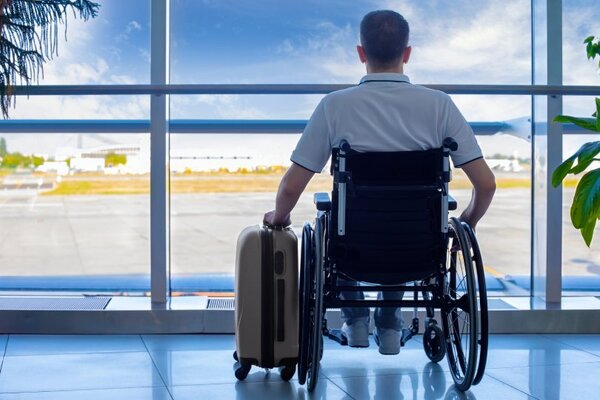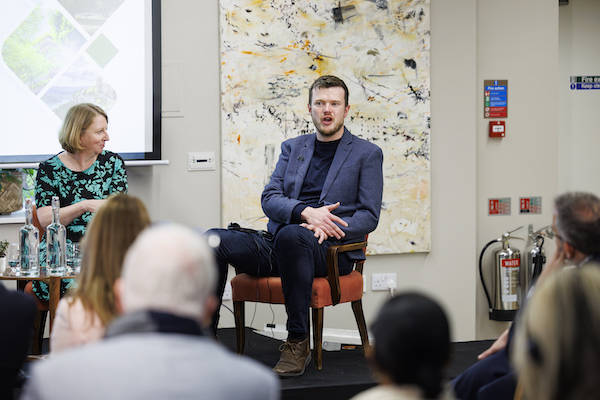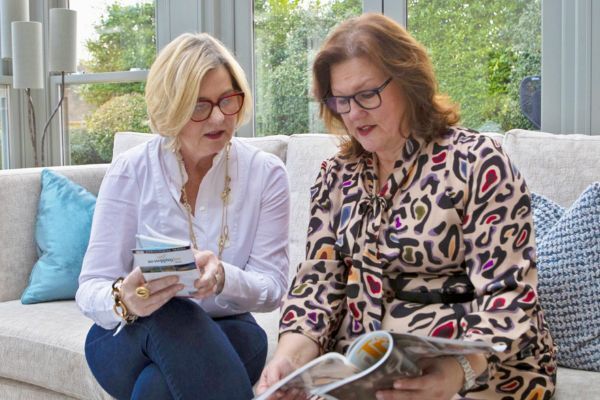Travel ‘neither accessible nor truly inclusive’ in its current state
Travel is neither accessible nor truly inclusive in its current state, and must invest more time in understanding the needs and desires of travellers living with disabilities and other accessibility requirements.
International Women in Travel and Tourism Forum (IWTTF) delegates were on Thursday (27 June) told making travel inclusive and accessible to all was a moral and economic imperative.
"Disabled people are disenfranchised by our industry as it’s neither accessible nor inclusive,” said Richard Thompson, co-founder and chief executive of inclusive travel agency Inclu.
“We have to recognise that one in six of the world’s population has a disability,” he continued. “It’s not a niche market, we have kept it that way, but it’s not. It’s low-hanging fruit.”
Thompson told delegates changing attitudes towards people living with disabilities needed to come from the top down and could not "sit at one person’s desk".
Limitless Travel chief executive Angus Drummond agreed, explaining where companies can only succeed up to a certain point, the government should intervene to normalise all kinds of travel for people with disabilities.
“Without government intervention, and without the legislation to protect them, the people with the highest level of needs are not going to be catered for,” he said.
Drummond, who founded Limitless Travel after being diagnosed with muscular dystrophy at the age of 23, said customers with disabilities should be treated like everybody else and shouldn’t be forced to compromise on their desired standards on the basis of the uneven accessibility landscape in travel.
“There needs to be a mindset shift in the way disabled travellers are treated,” he continued. “When you go to a hotel, your main priority is the quality of the restaurant or of the beach, not how accessible it is."
Drummond added there shouldn’t have to be compromises in terms of quality of service to provide higher levels of accessibility.
Delegates heard companies shouldn’t be afraid of getting the ball rolling by asking pertinent questions and aiming to put themselves into their clients’ shoes.
"I want to see my customers have the same experiences as anybody else,” said Nicola Degnan, Hays Travel’s industry leader in learning and development.
Degnan said simply asking questions could also help staff open up about their own disabilities or accessibility needs – whether visible or not – allowing them to relate with their clients more authentically.
“If customers can’t see themselves in us, how can we expect to understand them?” she added.

Meanwhile, Holly Addison, partner at talent specialist Leathwaite, said many talented and resilient people with disabilities were often being overlooked by travel employers.
"A lot of the work I do is bringing the conversation in because, disappointingly, when I am working with companies that are looking to bring in a more diverse team, they talk about gender, ethnicity and maybe socio-economic diversity.
"I would say less than 2% of the conversations focus on disability inclusion. And when you think almost 30% of households now have a member with a disability or a long-term condition, it’s a business imperative that’s being ignored."
Sign up for weekday travel news and analysis straight to your inbox

Ilaria Grasso Macola
Supplier Directory
Find contacts for 260+ travel suppliers. Type name, company or destination.













